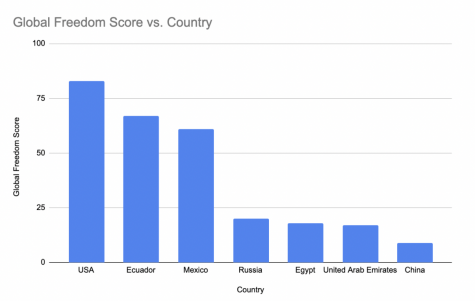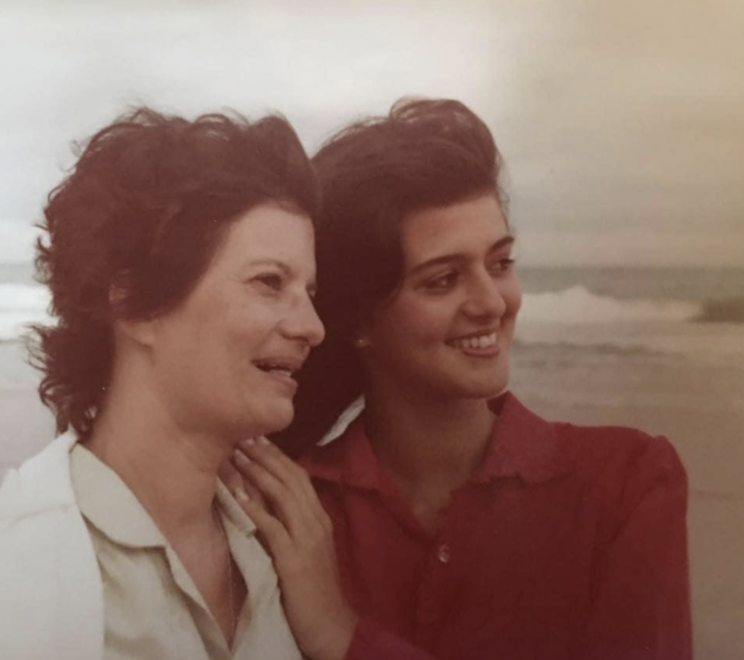Recognizing your American privilege: Why we are blessed to live in the US
Photo provided by Jacqueline Passios
My grandmother, Miriam Barros (left), and my mother, Jacqueline Passios (right), on a beach in Recife about 14 years into the dictatorship. Just two years after this photo was taken, Brazil held the first direct election for governor since the military regime started. According to Folha de S.Paulo, 48 million voters went to the polls.
In the spring of 1964, the Brazilian Armed Forces overthrew President João Goulart, establishing a military dictatorship in Brazil that would last 20 years. My mother, a child at the time, began to hear stories of “rebellious” neighborhood kids disappearing in the night on her way to school. The TVs only played one or two channels. Political demonstrations were forbidden and political parties suspended. The regime could take away any citizen’s civic rights for 10 years. My grandmother lost her job in the court system merely because the regime believed it a threat. By 1985, the dictatorship tortured 20,000 people and nearly 500 were confirmed killed or missing.
For this reason, I can’t help seething when I hear people constantly condemning America as cruel, embarrassing or awful. Now, don’t get me wrong, the US definitely has its fair share of problems. But compared to the Middle East, South America, Russia or China, America is excelling in equality, political freedom, justice and more.
For example, Mexico is about one-fifth the size of the United States; yet, there are roughly 140,000 more reports of sexual violence in Mexico than the U.S. annually. According to the non-profit research organization Freedom House, Russia receives a 20/100 Global Freedom Score, a mark based on citizens’ political rights and civil liberties, while the United States receives a score of 83/100.
As for gender equality, women in Saudi Arabia gained the right to vote just six years ago. Additionally, in a poll of almost 4,000 respondents by the Institute for Applied Economic Research, 59% of Brazilians said that if women ‘knew how to behave,’ there would be fewer rapes. When regarding civil liberties, the Chinese government is of the most restricted. According to the Cyberspace Administration of China, the government shut down nearly 130,000 social media accounts and over 12,000 websites between January and September of 2020.

My goal by presenting this information is not to invalidate efforts to improve the US, but to simply encourage an appreciation of the freedoms it offers and the rights it values. Liberties, such as the ability to criticize the government or to safely protest against misogyny, have become so ingrained in our lives, so commonplace that we take them for granted. We forget these rights are not handed to everyone. In doing so, we discount the suffering of millions around the globe.
Progressing as fast as we are, it is crucial we look back as well as forward. To appreciate rights we may deem basic is to more deeply understand the struggles of those less fortunate. Hopefully, this heightened gratitude and awareness will inspire US citizens to use their privilege in the name of others.
When my mother made plans to come to America, she saw a country of economic and educational opportunity. It was here that she earned her master’s degree and started teaching. She saw possibility and progress and hope. As US citizens, we should still see that, too.

Journalism has always been a passion for Web Managing Editor Giselle Oldani ’22. To her, Inklings is an opportunity to do good in the world.
“There’s...


















































